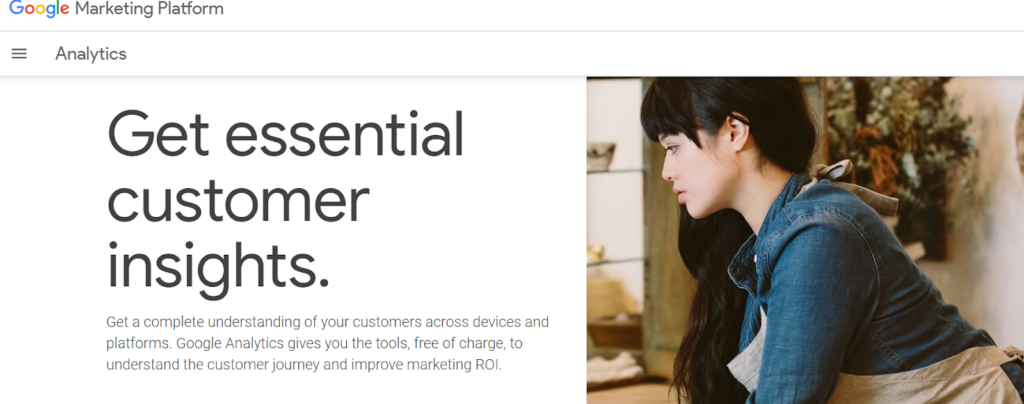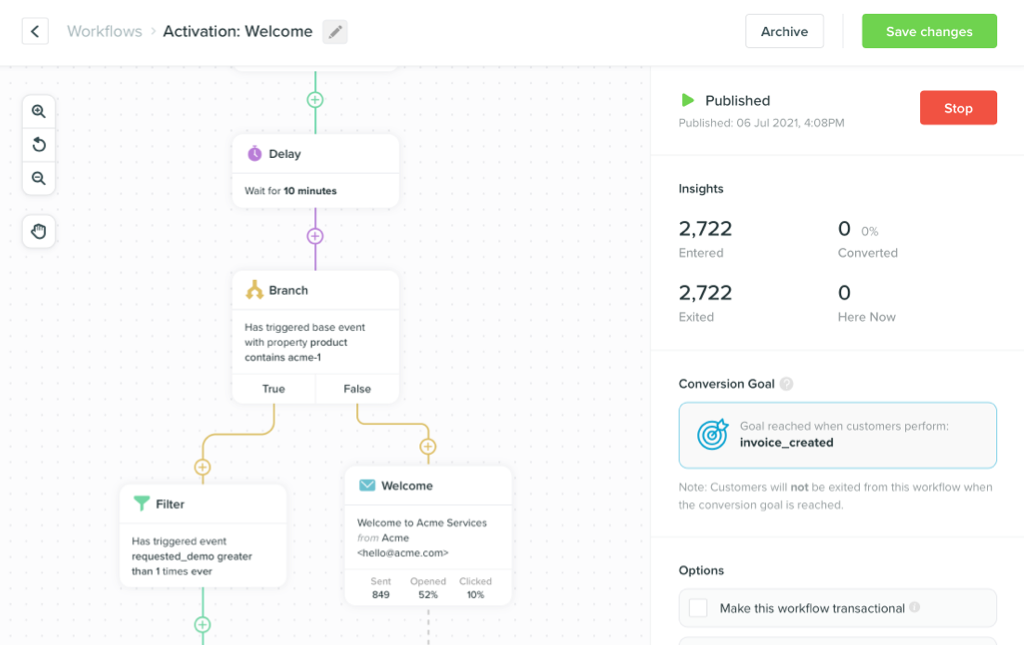- All Posts
- /
- The Power of Social Proof in Product Marketing
The Power of Social Proof in Product Marketing
Uncategorized-
Rachel Carson
-
Updated:Posted:
On this page
In the vast expanse of the digital universe, where each click opens pandora’s box, standing out is an art and a science. In this vibrant yet overwhelming marketplace, businesses face the Herculean task of making their mark.
As consumers, our decisions are increasingly driven by the opinions, actions, and validations of others. Whether we’re selecting a new software solution, a restaurant, or even a pair of shoes, we lean on collective wisdom.
So, how do brands create a lasting impression? The secret lies in a fundamental human tendency called ‘social proof’.
In the world of product marketing, especially in a digital-first age, understanding and leveraging social proof can spell the difference between a product that merely exists and one that resonates.
This guide dives deep into the world of social proof, offering a blueprint for Software as a service (SaaS) businesses to seamlessly weave this phenomenon into their marketing strategies for optimal impact.
What Is Social Proof?
Social proof is the idea that — people tend to do what they see others doing. A simple yet powerful psychological phenomenon is at the heart of the term ‘social proof‘. It encapsulates our innate tendency to look to others when making decisions, be they trivial or significant.
This behavioral trait isn’t a newfangled discovery tied solely to the rise of online shopping; instead, it harks back to our evolutionary past.
Historically, following the collective ensured safety and survival. In contemporary times, particularly in the digital realm, this group-following instinct prompts consumers to seek peer affirmation before diving into a purchase or service commitment.
Social media platforms and online communities have further accentuated the significance of social proof. In our interconnected world, an Instagram post or a candid review can ripple across continents, instantly molding perceptions and influencing decisions.
Brands like Starbucks, for instance, have capitalized on user-generated content, encouraging coffee enthusiasts to share their unique experiences on platforms like Instagram.

The sheer act of sharing, enhanced by specific brand hashtags, is a powerful testament to the product’s quality and appeal, influencing potential consumers.
The Psychology Behind Social Proof
When faced with uncertainty or ambiguity, we instinctively look to others for guidance and assurance. This tendency for external validation is rooted in our desire to make informed choices while avoiding missteps. Beyond the practicality, it also speaks to our inherent need for social belonging.
Humans have an intrinsic drive to connect with groups or communities that mirror our interests and values. This drive isn’t solely about being part of a larger whole but tapping into that collective intelligence to traverse unknown paths.
Today, this behavior is amplified. Social media platforms like Facebook, Instagram, and LinkedIn serve as gateways to a plethora of information, enabling users to mold narratives and exchange stories. All of which influence how we perceive and decide.

Take, for instance, the simple task of selecting trainers. When a brand like Nike boasts a following of a hundred million on Instagram, it’s not merely a testament to its popularity. Such a following implicitly conveys reliability, quality, and modern appeal.
Examples of Social Proof
Understanding and implementing social proof is pivotal in marketing, especially for SaaS products. Here are various types of social proof that can significantly impact customer decisions:
-
Customer Reviews and Ratings: Positive reviews and high ratings on platforms like Trustpilot or Yelp show that other customers have had a great experience with your product or service.
-
User Testimonials: Sharing real stories and testimonials from satisfied customers can build trust and credibility.
-
Case Studies: Highlighting success stories of how your product or service has benefited specific customers can demonstrate its value.
-
Influencer Endorsements: When well-known influencers or industry experts recommend your product, it can sway potential customers to try it.
-
User Count: Displaying the number of users or customers you have can suggest popularity and trustworthiness.
-
Social Media Engagement: High likes, shares, and comments on social media posts can indicate a strong following and customer engagement.
-
Media Mentions: Being featured in reputable publications or media outlets can boost your credibility.
-
Trust Badges: Displaying security and trust badges, like SSL certificates or industry certifications, can reassure customers about their data safety.
-
Partnerships: Highlighting partnerships with recognized brands or companies can positively influence perception.
-
Celebrity Endorsements: When celebrities or well-known figures endorse your product, it can attract attention and trust.
-
Peer Recommendations: Recommendations from friends or colleagues carry significant weight in decision-making.
-
Community Activity: Active user communities or forums can signal a thriving user base.
These examples of social proof can help you establish trust, credibility, and influence potential customers’ decisions in your favor.
Leveraging Social Proof for SaaS Product Marketing
In the world of SaaS product marketing, social proof isn’t just a bonus – it’s the heartbeat of credibility, conversion, and visibility. It’s evident when looking at the highest-performing SaaS products: their marketing leans heavily on the power of social proof. The form it takes needs to resonate with your target audience.
Consider startups in niche markets. Their rise is often fueled by detailed case studies that don’t just highlight features but tell stories of real-world challenges tackled effectively.
But authenticity is the unsung hero here.
Any form of social proof must be genuine and trustworthy, be it testimonials, endorsements, or reviews. In today’s savvy digital world, customers have a keen eye for spotting anything that seems fabricated. And a single insincere review can damage trust quicker than ten authentic ones can build it.
Showcasing social proof is an art in itself. The strategic placement of endorsements, glowing reviews, engaging testimonial videos, or real-time purchase notifications can significantly influence a potential customer’s decision. An expertly positioned piece of social proof can provide the exact push a prospective client requires.
The role of integrations, though sometimes under emphasised, is monumental in substantiating a SaaS product’s quality, market relevance, and reliability. By facilitating seamless connections with industry-leading tools, integrations enhance data quality, streamline workflows, and serve as a silent yet potent endorsement. It indicates that other industry leaders back the product, further solidifying its reputation and appeal.
Understanding the critical role of social proof in SaaS product marketing is paramount, especially when considering the industry’s remarkable growth trajectory. By 2022, the SaaS industry was valued at US$186.6 billion. This figure isn’t just impressive; it’s growing at a relentless 18% yearly.
With forecasts suggesting the sector could touch a whopping US$700 billion by 2030, the competitive landscape will only get fiercer. And in such a landscape, social proof will be more crucial than ever.
The surge in SaaS solution adoption is unmistakable. A staggering 99% of companies are projected to integrate SaaS solutions by the end of 2023. And it’s not just the tech giants; small businesses, often heralded as the early adopters, have a 78% adoption rate for SaaS tools.
In essence, masterfully leveraging social proof in SaaS product marketing is more than a strategy; it is an art and a decisive path to sculpting a dominant, trustworthy, and resilient market presence.
Integrating authentic, resonant, and strategically placed social proofs can catapult a SaaS product to unprecedented heights, steering the helm towards continuous growth in a market that is as promising as it is competitive.
Measurement and Optimization
Every savvy marketer knows that decisions shouldn’t solely be based on instinct. Quantitative metrics offer insight into the real-world impact of strategies employed.
In product marketing, the ability to track the conversion impact of social proof is indispensable.
By definition, conversion rates signify the percentage of visitors undertaking a desired action, from a simple sign-up to an outright purchase.

Businesses can use website analytics tools like Google Analytics to discern how social proof shapes visitor behaviors and engagement. For instance, pages adorned with customer testimonials might witness longer average user durations.
Additionally, such elements could increase the likelihood of visitors responding to call-to-action prompts.
Moreover, A/B testing is a litmus test for different social proof variants. Through platforms like Optimizely, companies can experiment with diverse testimonials, influencer endorsements, or user-generated content to discern which versions resonate most with their audience and generate higher conversions.
![]()
While analytics and testing provide tangible data, customer surveys bridge the subjective gap. Through feedback platforms like SurveyMonkey, businesses can glean insights into how customers perceive and internalize social proof elements, giving a holistic view of its impact.
Overcoming Challenges and Pitfalls
While social proof is a potent weapon in a marketer’s arsenal, it’s not devoid of challenges. Two primary hurdles stand out: Ensuring authenticity and managing negative social proof.
In an era of increasing digital skepticism, authenticity is paramount. Fake reviews or endorsements tarnish a brand’s reputation and undermine the essence of social proof.
The solution lies in meticulous curation and showcasing genuine user experiences. This builds trust, making the social proof visible and credible.
Negative feedback, low product ratings, or a scarcity of testimonials can deter potential customers. The mere absence of positive social proof can radiate negativity. It’s crucial for brands to actively manage this by fostering transparent communication channels and demonstrating a proactive approach to addressing concerns. Strategies include establishing active and relevant links to authentic social proof sources, presenting audience-specific testimonials, and refining review sections for enhanced user-friendliness.
If specific social proof elements, like social share counts, reflect poorly on the brand, replacing or removing them is advisable.
Embracing the Influence of Social Proof
Social proof is not just a marketing strategy; it’s a powerful force that shapes consumer behavior and perceptions. In the competitive SaaS industry, where trust and credibility are paramount, leveraging diverse forms of social proof can be a game-changer.
For SaaS product marketers, understanding the various types of social proof and implementing effective strategies, such as showcasing customer reviews, leveraging influencer collaborations, and encouraging user-generated content, is paramount.
By measuring, optimizing, and addressing challenges, SaaS companies can harness the power of social proof to build credibility, instill trust, and drive meaningful customer engagement.
However, as with all powerful tools, social proof demands careful handling. Ensuring authenticity and adeptly managing negative impressions are challenges that brands must skillfully navigate.
As the online world continues its relentless evolution, the one constant for product marketers and SaaS companies will be the undeniable force of social proof. Embracing its power while staying vigilant of its pitfalls is the way forward for enduring success.

